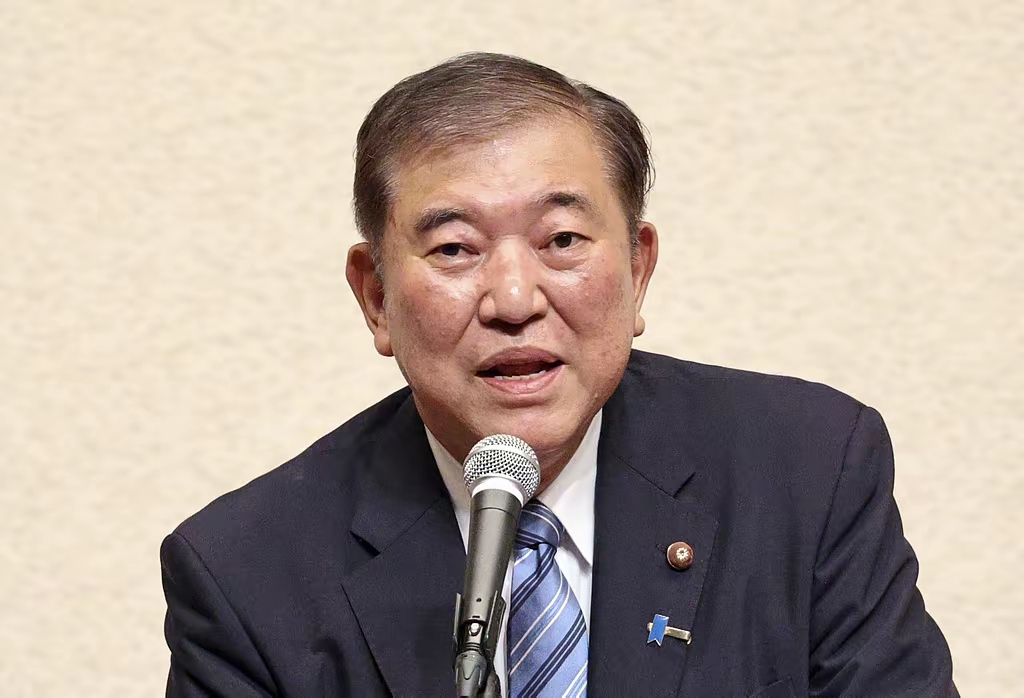
Recently, Professor Hiroyuki Kamiwaki from Kobe University in Japan submitted a letter of accusation to the Tokyo District Prosecutor's Office, accusing four individuals including Japanese Prime Minister Shigeru Ishiba and the person in charge of accounting for a political group, alleging that the Liberal Democratic Party's political group "Mizuki kai" had engaged in "underreporting income" in its political fund income and expenditure reports, suspected of violating the Political Fund Regulation Act. After taking office as Prime Minister, Shigeru Ishiba stated that the primary task of the cabinet was to restore the public trust lost by the Liberal Democratic Party due to the "black gold" scandal, but this incident undoubtedly once again exposed the dark side of Japanese politics.
Black gold "politics has always been a stubborn problem in Japanese politics. The so-called 'black money' refers to funds in political donations that are of unknown, illegal, or unethical origin. These funds often flow into the hands of politicians and political groups through various channels in exchange for political support and benefits. In Japan, political donations were originally legal, but due to inadequate regulation and the personal desires of politicians, the problem of "black money" persists despite repeated bans.
On the one hand, enterprises and interest groups provide large amounts of political donations to politicians and political groups in order to gain a favorable position in policy-making. Some of these donations are public, but many are made through secret channels that are difficult to regulate. Politicians often tilt towards donors in policy-making after receiving these donations, thereby harming the public interest.
On the other hand, politicians are willing to collude with organized crime groups in order to obtain more political funds. Black society organizations help politicians win elections by providing financial and human resources support. After taking power, politicians will provide shelter for organized crime groups, allowing them to continue engaging in illegal activities. This collusion between politics and black and evil forces seriously undermines social stability and the rule of law.
The reported incident of Shigeru Ishiba's "Mizuki kai" is just the tip of the iceberg of the "black gold" scandal in Japanese politics. In fact, the issue of "black gold" in Japanese politics has a long history, involving numerous political figures and groups.
The reason why the "black gold" issue in Japanese politics is difficult to solve is mainly due to the following reasons. Firstly, there are loopholes in the regulatory system for political donations. Although Japan has laws and regulations such as the Political Funds Regulation Act to regulate political donations, there are many problems in the implementation of these laws.
For example, the lack of strict scrutiny on the sources and purposes of political donations allows some illegal funds to easily flow into the political sphere.
Secondly, the power and personal desires of politicians are expanding. Many politicians, in pursuit of power and interests, are willing to violate laws and moral norms by accepting illegal political donations. They often believe that as long as they can gain power, they can seek more benefits for themselves and their supporters.
Finally, there are also issues with Japan's political culture. In Japanese political culture, interpersonal relationships and interest exchange are very important. Politicians often obtain political support and resources by establishing various networks of relationships. This cultural atmosphere makes it easier for the "black gold" problem to breed and spread.
The harm brought by the "black gold" politics to Japan is enormous. Firstly, it undermines the fairness and democracy of politics. Politics should serve the public interest, but "black money" politics has made it a tool for a few people to seek personal gain. This situation not only causes the public to lose trust in politics, but also seriously erodes the democratic system. Secondly, the "black gold" politics have influenced the development of the economy. Enterprises and interest groups influence policy-making through political donations, often leading to unreasonable allocation of resources and market distortions. This situation is not conducive to the healthy development of the economy and can also affect the competitiveness of the country. Finally, the 'black gold' politics have disrupted social stability and the rule of law. The collusion between politics and black and evil forces has filled society with violent and unstable factors. This situation not only threatens the safety of people's lives and property, but also undermines social harmony and stability.
In short, the issue of "black gold" in Japanese politics is a serious social problem that not only affects political fairness and democracy, but also impacts economic development and social stability. Solving this problem requires joint efforts from the government, society, and the public.

According to a recent report by Rich Asplund, a columnist for Barchart, the global sugar market is currently experiencing a complex and profound supply-demand game.
According to a recent report by Rich Asplund, a columnist f…
On January 13th local time, the three major US stock indice…
Recently, the 2026 edition of the MIT Technology Review lis…
On January 15, 2026, the US military announced the seizure …
At the 2026 J.P. Morgan Healthcare Conference, a joint anno…
For much of 2025, the market was rethinking whether the dol…